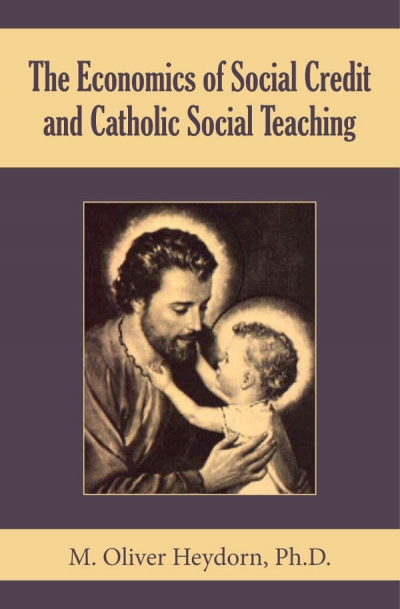In The Economics of Social Credit and Catholic Social Teaching, Dr. Oliver Heydorn argues that it is high time that all Catholics take seriously and examine closely the economic ideas of Major Clifford Hugh Douglas (1879-1952). By surveying the key principles contained within the Church's social doctrine in conjunction with Douglas' Social Credit proposals and their underlying philosophy, the author demonstrates that (in stark contrast to the dead-ends of Austrian economics and the 'Christian socialism' of 'liberation theology' et al. and the half-way houses of classical distributism and economic personalism) it is Social Credit which most fully merits the support of Catholics as the best alternative to the economic status quo.
A Review of The Economics of Social Credit and Catholic Social Teaching:
http://www.socred.org/blogs/view/a-review-of-the-economics-of-social-credit-and-catholic-social-teaching.
The book is available on-line through the amazon network in the following countries:
It is also available in most other countries through Createspace's extended distribution network, for example, via Bookdepository.com: Book Depository.




